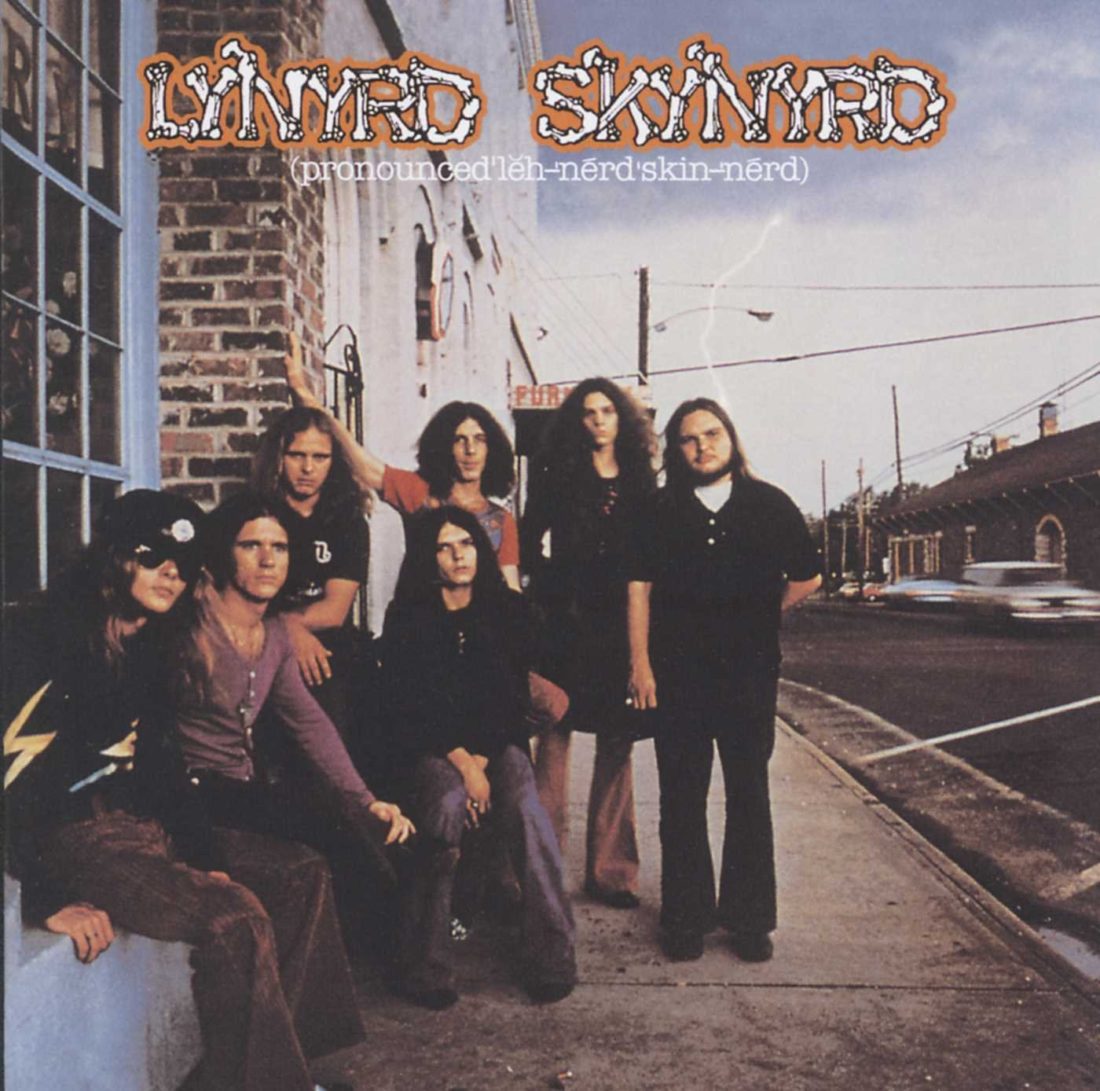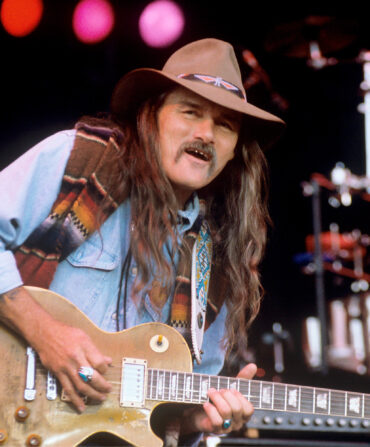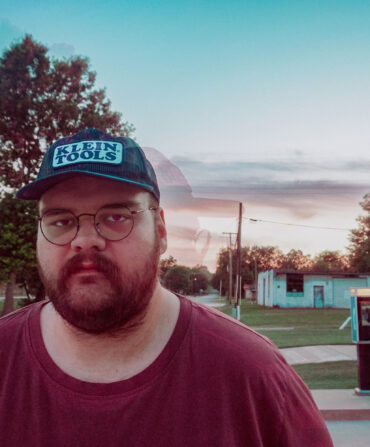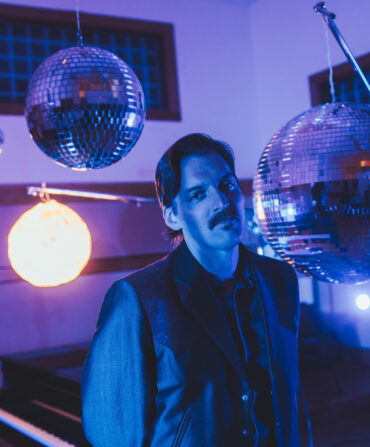Nearly fifty years after it was written, “Free Bird” is still the signature concert closer for the Southern rock band Lynyrd Skynyrd, whose final farewell tour wraps up in October in Manchester, Tennessee. Founding members Ronnie Van Zant and Allen Collins wrote the song in Jacksonville, Florida, in 1970, and it wasn’t long before “Free Bird” and its extended guitar solo near the end became one of the band’s most well-known tunes and a live-show favorite.
After Van Zant died in a plane crash in 1977, the song took on new meaning. Guitarist Gary Rossington, who survived the crash, recruited Ronnie’s younger brother Johnny Van Zant in the 1980s to help reform the band and—eventually—sing his brother’s words for thousands of fans.
We spoke with Johnny Van Zant, Rossington, and guitarist Rickey Medlocke about the origin and evolution of the song, why fans insist on yelling “Free Bird!” at concerts, and what it feels like to perform it in a different city each night for the final time.
The Origin
In 1964, a group of teenaged friends including vocalist Ronnie Van Zant and guitarists Gary Rossington and Allen Collins started jamming together in Jacksonville, Florida. They cycled through a few band names, eventually landing on Lynyrd Skynyrd in joking reference to Leonard Skinner, their high-school gym teacher who railed against boys having long hair. By the seventies, the band had developed a following, and the friends were writing what would become some of Skynyrd’s most popular songs, including “Free Bird.” Multi-instrumentalist Rickey Medlocke joined for a time shortly thereafter, playing drums and recording.
Gary Rossington: One rehearsal day, Allen started playing the chords to “Free Bird” at the house where we used to hang out after school and after we quit school. Ronnie used to always lie on the couch after two or three hours of rehearsing. He’d lie there and hear mistakes and say, “Let’s fix that.” When one of us would get a good idea going, he’d say, “Play it, play.”
Allen had these chords, and he’d play them over and over, but at first Ronnie thought there were too many chord changes to write lyrics to. This time Ronnie said, “Play that again.” Allen played the chords, then I’d play them, and Ronnie just sat there and wrote the lyrics, a love song. How we were traveling on the road. We hadn’t really made it yet. We were playing everywhere we could play. It wasn’t so heavy or nothing to us at first.
Rickey Medlocke: The way Ronnie wrote lyrics, you got out of it the meaning in your own way. “Bye bye, baby, it’s been a sweet love,” doesn’t mean a final goodbye to me. It means goodbye until I return.
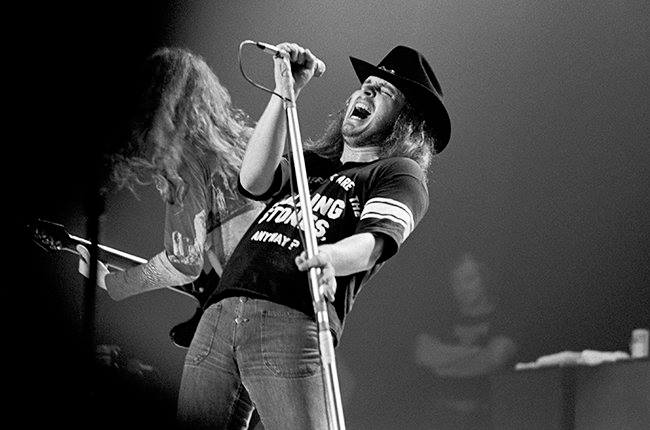
Photo: Courtesy of Lynyrd Skynyrd
Ronnie Van Zant in 1975 at the Omni Coliseum in Atlanta.
GR: We started playing it, just the slow part, at clubs. Then, after a few sets, Ronnie would say, “Y’all play a little longer, my throat’s hurting and I need a break.” We’d play a minute longer one night, then the next night two minutes or three, and then we’d jam out for five minutes or more. One guy at this club in Atlanta said, “Would y’all play that song ‘Firefly’ that has a big ending? That one we can all dance to at the end?”
RM: It wasn’t until they added that ending that “Free Bird” was let loose. The song took off at the clubs.
In 1972, Lynyrd Skynyrd signed with MCA Records, which produced and released the band’s debut album, Lynyrd Skynyrd (Pronounced ‘Lĕh-‘nérd ‘Skin-‘nérd), in 1973. “Free Bird” was the second side’s final track.
RM: We cut the very first recording in Muscle Shoals. The band already had the ending worked up by the time I joined. They showed me the full version, and I think it was like seventeen minutes long.
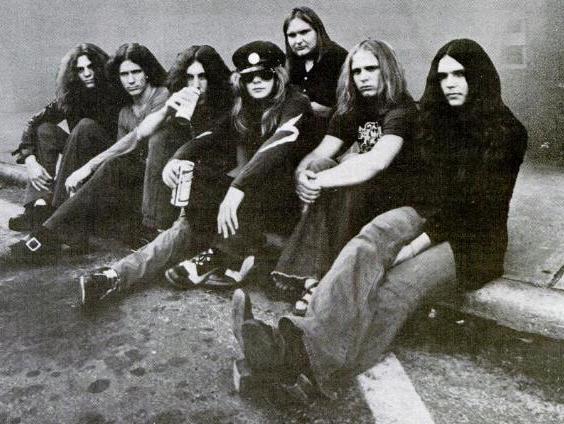
Photo: Courtesy of Lynyrd Skynyrd
Lynyrd Skynyrd in 1973.
GR: MCA said we couldn’t release the full song because no one would play it on the radio. It was too long. They said to do the slow part and fade out, and we were like, “No, you’re not going to change our song because we like the end part.” We did a full version, but MCA had the power to do it as they wanted.
“Free Bird,” with its extended ending, became a live-show signature for the band throughout the seventies.
GR: During our shows, Ronnie would dedicate it to someone. After Berry [Oakley] and Duane [Allman] had passed from motorcycle crashes, we would dedicate it to them, because as Ronnie said, they were free birds. They were our friends, our big influences, and it broke our hearts. We would say, “This song is for them tonight.”
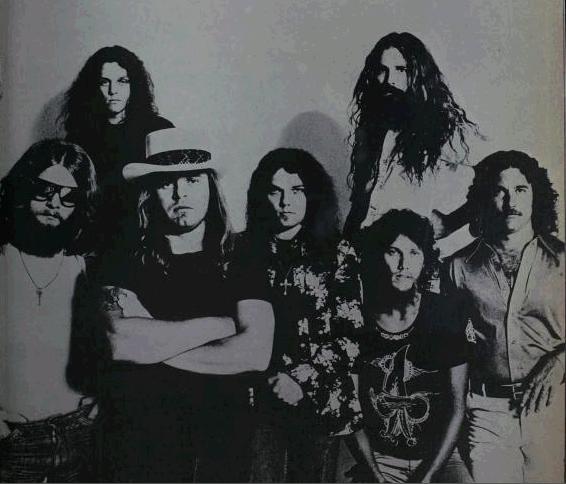
Photo: Courtesy of Lynyrd Skynyrd
Lynyrd Skynyrd in 1977, shortly before the plane crash that killed six passengers, including Ronnie Van Zant.
The Return
On October 20, 1977, as the band was flying between shows in South Carolina and Louisiana, the charter plane ran out of fuel and crashed in a Mississippi forest, killing six passengers, including Van Zant. Collins survived the crash with serious injuries. He passed away in 1990. Rossington also survived the crash and today is the band’s sole living original member still performing. In 1987, Rossington and other pre-crash members organized a reunion tour and approached Johnny Van Zant, a solo artist at the time, about joining as lead vocalist.
Johnny Van Zant: I had never wanted to be in the band. Lynyrd Skynyrd was going to go on with my brother forever. Ten years after the crash, I was called into a meeting. I walked into a room, and here are these guys who survived the crash with my brother. They wanted me to come on for a tribute tour.
Van Zant felt uncomfortable singing “Free Bird” on the tour, until Rossington said something that changed his mind.
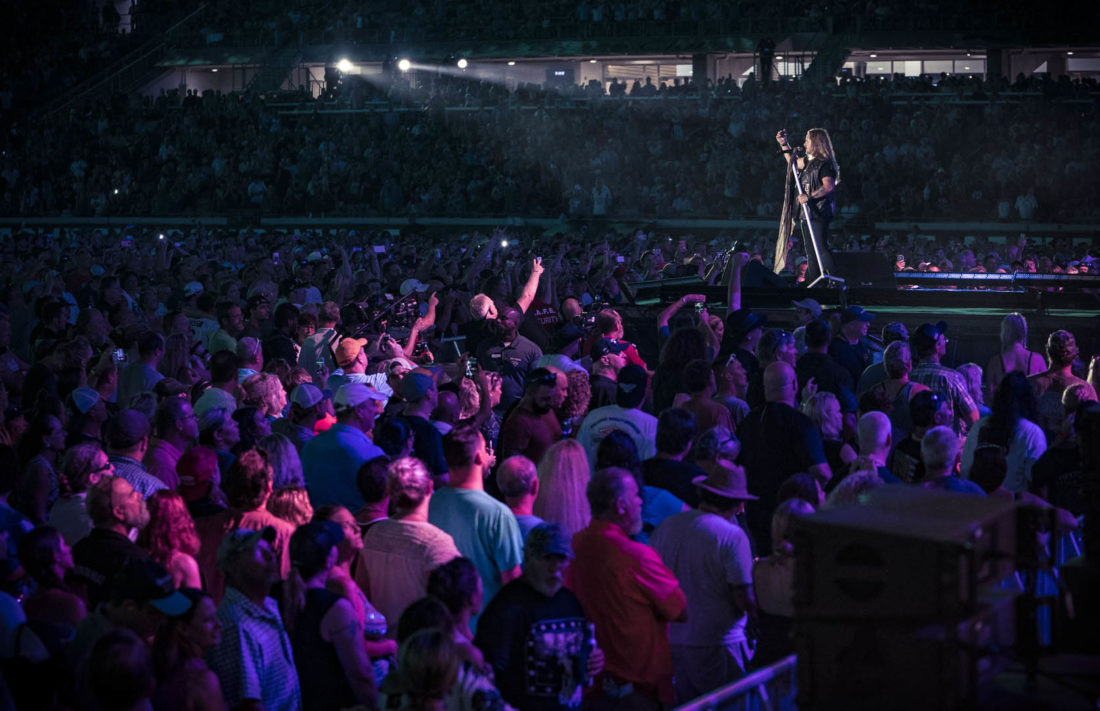
Photo: Courtesy of Lynyrd Skynyrd
Johnny Van Zant performing with Lynyrd Skynyrd in 2018.
GR: After the crash, we just had Ronnie’s microphone with a hat on it, and we played “Free Bird” instrumental and let the audience sing it. But I knew people wanted to hear the song. And I knew Ronnie wrote it to be sung.
JVZ: I told Gary, “Ronnie is the guy who should be singing this.” Then one show, we came off the stage after “Alabama,” and Gary said, “The crowd’s raising heck and I’m not going back out there unless you sing it.” He told me, “Ronnie was a singer and a songwriter and the song needs to be sung.” That hit me, and I’ve been singing it ever since.
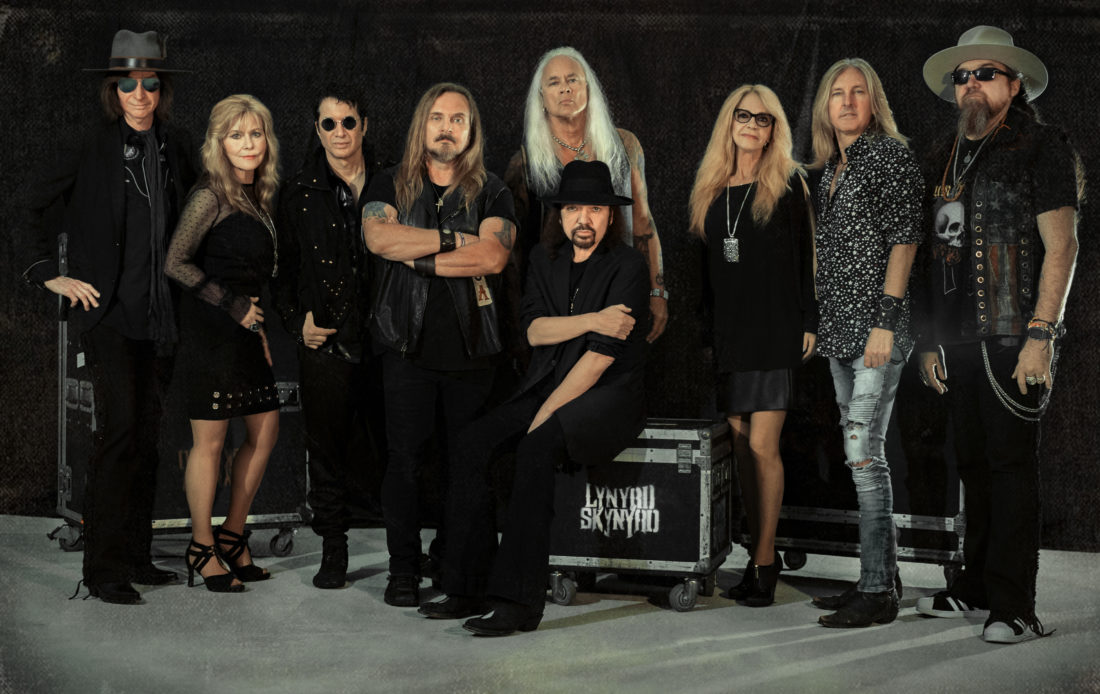
Photo: Doltyn Snedden
The band today.
Following Collins’s death in 1990, Medlocke, who had been the front man of the band Blackfoot, re-joined Lynyrd Skynyrd on guitar.
RM: As it happens, Allen’s style and my style were similar, so it was pretty well laid out that I was going to play Allen’s parts. The easiest one to work up was “Free Bird” because the ending is put together in sections. I take Allen’s basic lead and stick pretty well to it, but I put a different little twist on it here and there. Every night “Free Bird” is a little different. The audience can’t tell it, but I can. There’s not a night that has ever gone by that they don’t stay after the whole set’s done to hear “Free Bird.”
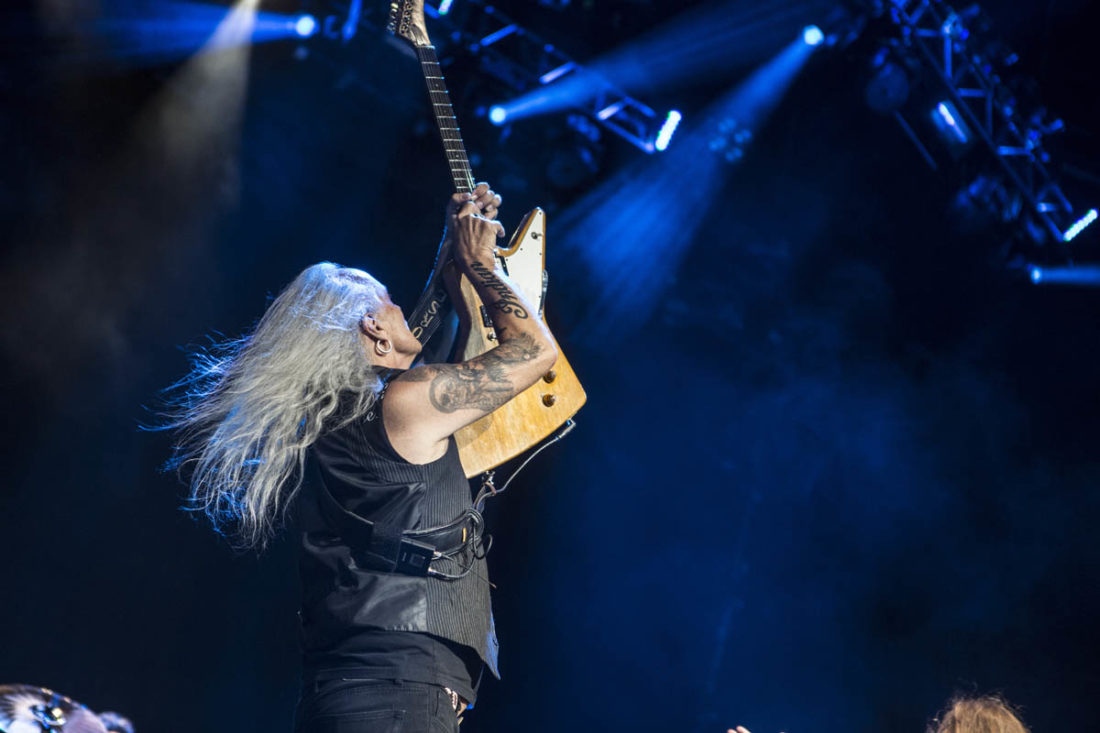
Photo: Courtesy of Lynyrd Skynyrd
Rickey Medlocke in 2014.
The Legacy
Concertgoers yelling “Play Free Bird!”—whether at a Lynyrd Skynyrd show or not—is just one way the song has seeped into rock music lore.
GR: We weren’t aware of people yelling “Free Bird!” at other shows till after it was a thing, because during our shows when we would stop, they’d go “Free Bird! Free Bird!”
JVZ: One time, I went to a Cher concert here in Jacksonville with my wife. We had a few cocktails, and the next thing I know I’m out in the audience hollering “Free Bird!” “Free Bird!” at Cher. [Laughs.] My wife told me to shut up.
GR: Ronnie and Allen didn’t live long enough to see it turn into a classic. They didn’t get to see that everybody everywhere knows “Free Bird.” It’s played at graduations, weddings, and funerals, and a lot of people say we got them through college with “Free Bird.”
Every night, we look out at the audience and you see people singing every lyric with Johnny. At the end, everybody starts jumping up and down, and it’s emotional to watch the audience do that. The song lets you think about your love or people you’ve lost.
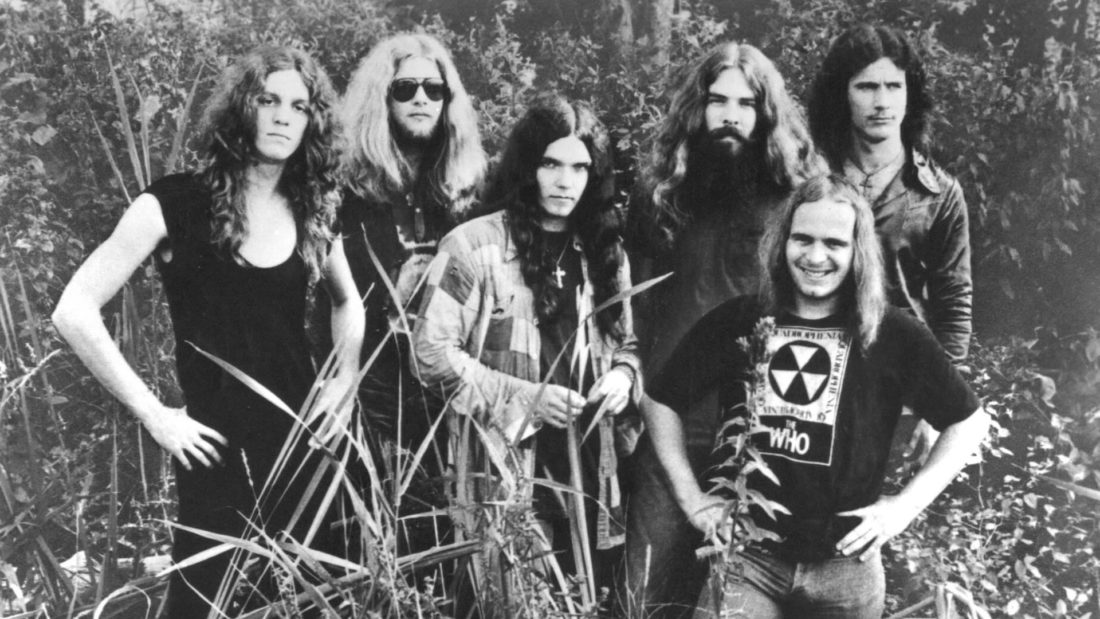
Photo: Courtesy of Lynyrd Skynyrd
Lynyrd Skynyrd in the 1970s.
JVZ: Being that this is our final tour, I’m thinking on stage each time, this is the last time I’m going to sing “Free Bird” in this city. I’m looking out at the audience, and I’ve been with the band for thirty-one years, and honestly it feels like it’s thirty-one seconds gone by.
We have a big screen with pictures of everyone who has been in the band, and sometimes we have a video playing where Ronnie sings it with me. It’s very cool. I have had people say that when I first started, I wasn’t as good as Ronnie. I never wanted to be as good as my brother. I just wanted to carry on his music. I’m Johnny, he was Ronnie, and that’s what kept me going. We’ll never forget the ones who started this.


